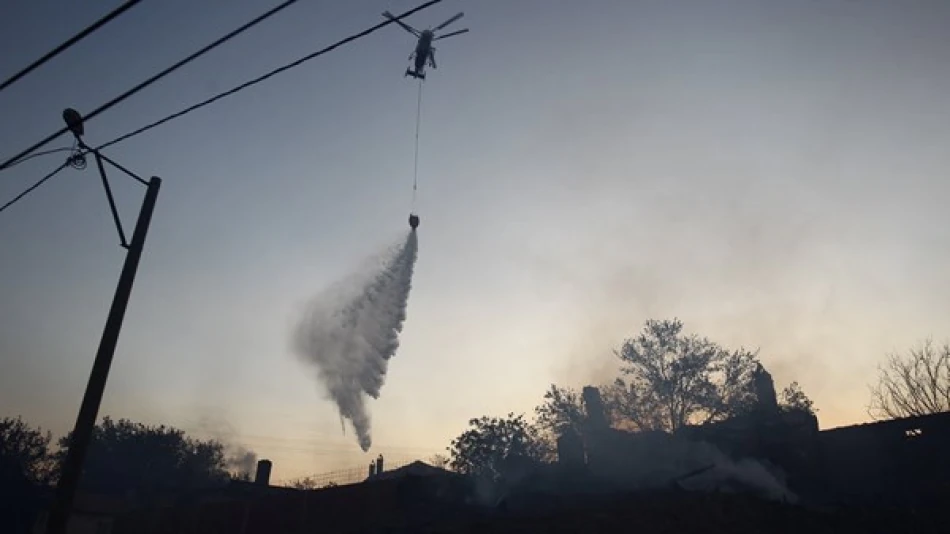
Turkey Evacuates Hundreds as Relentless Forest Fires Rage
Turkey Battles Major Wildfires as Hundreds Evacuated from Strategic Çanakkale Province
Turkish authorities are deploying 700 personnel and aerial support to combat rapidly spreading wildfires in Çanakkale province, forcing mass evacuations and shutting down critical infrastructure including the city's airport and the strategically vital Dardanelles strait. The blazes, fueled by 66 km/h winds and 33°C temperatures, highlight Turkey's growing vulnerability to extreme weather events that increasingly threaten both civilian areas and key economic corridors.
Emergency Response Mobilizes Across Northwest Turkey
Governor Ömer Turaman announced that firefighting efforts now involve aircraft, helicopters, ground vehicles, and approximately 700 personnel battling the flames across the northwestern province. The scale of the response underscores the severity of fires that have already affected around 50 people with smoke inhalation, though authorities report no serious injuries.
Precautionary evacuations have swept through high-risk areas, including university campuses, military zones, and residential neighborhoods. Local television footage shows massive smoke columns rising above hills, while Anadolu Agency captured police vehicles spraying water on fires that have reached residential buildings.
Strategic Infrastructure Under Threat
Dardanelles Closure Disrupts Maritime Trade
The closure of the Dardanelles strait represents a significant economic concern beyond the immediate fire threat. This waterway serves as a crucial link between the Mediterranean and Black Sea, handling substantial commercial shipping traffic. Any extended closure could impact regional trade flows and highlight the vulnerability of Turkey's strategic chokepoints to climate-related disasters.
Transportation Networks Paralyzed
Authorities have shut down the city airport and sections of major highways, effectively isolating parts of the region. The transportation disruptions demonstrate how quickly natural disasters can cascade through interconnected infrastructure systems, creating economic ripple effects far beyond the immediate fire zone.
Turkey's Growing Wildfire Challenge
This latest outbreak continues Turkey's pattern of increasingly severe wildfire seasons. The country has experienced devastating blazes in recent years, particularly along its Mediterranean coast, as rising temperatures and changing precipitation patterns create more fire-prone conditions. The combination of 33°C temperatures and high-speed winds in Çanakkale mirrors conditions that have sparked major fires across Southern Europe and California.
Climate Adaptation Becomes Economic Imperative
For Turkey's government and international investors, these recurring disasters underscore the need for enhanced climate resilience infrastructure. The rapid spread of fires to residential areas and critical facilities suggests current prevention and response systems may require significant upgrades to handle intensifying weather extremes.
The tourism sector, already recovering from pandemic impacts, faces additional pressure as wildfire risks threaten to become a recurring summer concern. International insurers and development banks are likely monitoring such incidents as indicators of Turkey's long-term climate risk profile.
Immediate Focus on Containment
With weather conditions remaining challenging, authorities have urged residents to avoid unnecessary travel to keep roads clear for emergency vehicles. The emphasis on preventive evacuation suggests lessons learned from previous disasters where delayed responses led to higher casualty rates.
The mobilization of both civilian and military resources reflects Turkey's recognition that such events require coordinated national-level responses rather than purely local firefighting efforts.
Most Viewed News

 Layla Al Mansoori
Layla Al Mansoori






